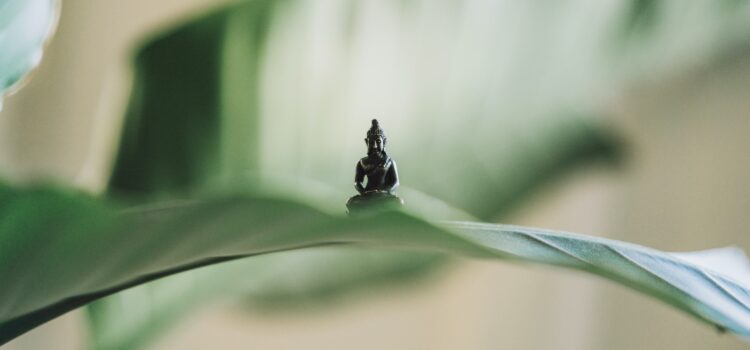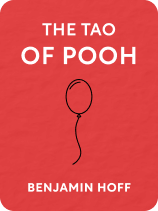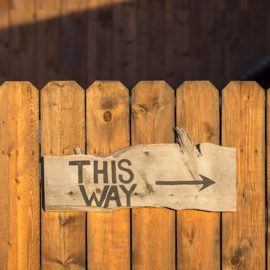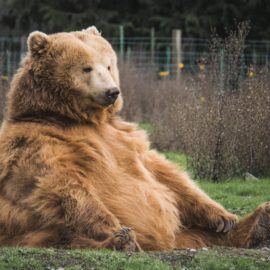

This article is an excerpt from the Shortform book guide to "The Tao of Pooh" by Benjamin Hoff. Shortform has the world's best summaries and analyses of books you should be reading.
Like this article? Sign up for a free trial here .
What are some examples of Wu Wei? How does Winnie-the-Pooh show Wu Wei?
Examples of Wu Wei focus on inaction. In The Tao of Pooh, it is known as the Pooh Way.
Read on for some examples of Wu Wei from The Tao of Pooh.
Examples of Wu Wei in The Tao of Pooh
With Wu Wei, you simply let things happen in the way the natural order dictates, and they work out whatever way they need to. You may disagree or dislike the result and feel disappointed or resentful at the time. But in hindsight, you will likely realize the necessary path life took in that moment for you to be where you are, doing what you’re doing in the present. Even if you’d tried to end up in the same place on your own, you likely couldn’t have created a better path and might have even made mistakes along the way.
There is no way to put the power of Wu Wei into academic terms or a category. It is simply what occurs when you follow the flow of life and your intuition. When things work out in the end, people will say you have psychic powers, but really you were simply sensitive to circumstances. The responsibility to make decisions shifts from you to the natural world. If you can accept what’s happening as the Way and not force your will or disappointment on it, you will learn how to be truly happy.
Pooh and Piglet’s Example
Pooh and Piglet’s birthday presents for Eeyore are good examples of Wu Wei.
> When Pooh discovered it was Eeyore’s birthday, he went home to find a suitable present. Piglet also wanted to give Eeyore something and went home to find something special. Pooh decided the best present was a jar of honey, so he grabbed one and set off toward Eeyore’s house. But along the way, Pooh started to feel hungry. He sat down and was relieved that he’d thought to bring a jar of honey with him. He ate the whole jar of honey before he remembered why he’d brought it in the first place. Instead of panicking, Pooh decided the jar was still a good gift and stopped to have Owl inscribe it with the words “A Very Happy Birthday.”
> Piglet had decided to give Eeyore a balloon left over from a previous party. He secured the balloon against his chest to make sure it didn’t fly off and ran all the way to Eeyore’s, wanting to beat Pooh there so it would seem like he’d remembered on his own. His mind was so filled with the gratitude Eeyore would show him that he didn’t see a hole in the ground. He tripped and landed on the balloon, popping it. Piglet was distraught that his present was ruined, but when Pooh showed up with his jar, Eeyore realized the jar was for putting things in and the balloon, now that it was deflated and more manageable, could be kept in the jar. The two gifts complemented each other, and everyone was delighted.
Examples of Wu Wei for the Current Social Crisis
If, as a collective people, we cannot turn our search for wisdom and contentment away from knowledge and cleverness and toward the natural order of things, we will suffer immensely. The great thinkers of the world have learned too much and lost compassion for others. Knowledge and cleverness have steered us away from reality because of the prominence given to information. We’ve all heard that “Knowledge is power,” and it’s true. Our powerful brains can think us into any idea or feeling we want.
But what has this thinking been used for? Isn’t every decision in life aimed toward gaining more knowledge and power so we can feel stable and happy? With all that energy used for the wrong endeavors, how happy or stable do any of us feel?
The people who will be successful in finding true wisdom and happiness are those capable of listening to their Inner Natures, being sensitive to circumstances, and allowing the natural flow of life to guide them. There are those who live this way now, and society tends to see them as anomalies or outliers of mainstream society. But these people are examples of what mainstream society has the ability to become if we stop manipulating the world around us.
Each of us has the Clever Rabbit, Scholarly Owl, Negative Eeyore, and Simple Pooh inside. We typically give the rabbit and owl space to play until we become unsatisfied; then, we complain like Eeyore. This process leads to nothing useful.
Writings of Chuang-Tse
A story from the writings of Chuang-tse is another one of the examples of Wu Wei. It expresses the benefit of following the natural rhythm of life and the detriment likely in thinking too hard for a solution.
> One day, Confucius saw a man who appeared to be drowning in the pool at the base of a waterfall. The man was thrashing about in the rough water. When Confucius and his men went to rescue the man, they found him happy and content on dry land. The would-be saviors asked him how he had survived, and the man replied that he’d learned to forget himself and simply follow the flow of the water. When he did not struggle, surviving was easy.
If you want to be truly wise and happy, you must become Pooh, seeing the world through a childlike wonder. That attitude may be difficult to locate, but if you can, you will find your way through the forest. Use these examples of Wu Wei to guide you.

———End of Preview———
Like what you just read? Read the rest of the world's best book summary and analysis of Benjamin Hoff's "The Tao of Pooh" at Shortform .
Here's what you'll find in our full The Tao of Pooh summary :
- How Winnie-the-Pooh perfectly models the principles of Taoism
- The 6 principles of Taoism reflected in Pooh's adventures
- How to become Winnie-the-Pooh and unlock a magic inside of you






